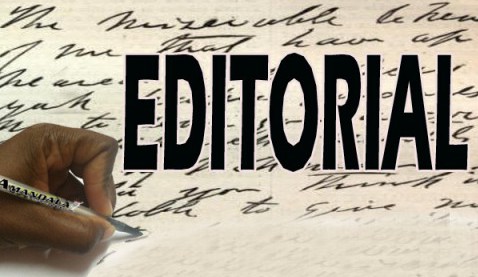At this newspaper we have spent the last four and a half decades trying to discuss and define who we are as a Belizean people and how we came to be where we are. It was necessary for us to do this because our schools were run by religious who were more focused on our eternal souls than on the daily life struggles we faced. For us as a Belizean people, the power realities were such that we felt the need to fight for an improved standard of living and for our individual and national dignity.
When this newspaper began in 1969, British Honduras was a self-governing British colony. We had a government run by Belizeans, but the British, our colonial masters, were in charge of our defense, foreign affairs, and immigration. As a Belizean people, we had experienced and suffered from imperialism, slavery, and colonialism, and we were fighting for what all the world’s colonized peoples were fighting for after World War II: we were fighting for independence and self-rule.
In this part of the world, the Western Hemisphere, the colonizers were European people, which is to say, the Spanish, the Portuguese, the British, the French, and the Dutch. In its beginning, the United States had been a British colony, but the United States declared its independence from Britain in 1776. Mexico and the Central American republics, including Guatemala, declared their independence of Spain in 1821. Cuba had been a Spanish colony, but then Cuba became a kind of American possession, and the Cuban people resented their new colonial status. Guatemala, for its part, declared that she inherited imperial rights over the territory of Belize from her colonial master, Spain.
Before the Europeans began to enter the Western Hemisphere in 1492, the so-called New World was inhabited by various Indigenous peoples. The Europeans began to inflict great violence upon those various Indigenous peoples, and when they began to die out, the Europeans imported African slaves into the Americas to do the various kinds of hard work so that the Europeans could become wealthy.
That is how the majority of the inhabitants of Belize are of African and Indigenous Maya origin. Africans and Mayas were the people who did the hard work so that the British and the Spanish in Belize and Mexico and Guatemala could become rich.
For the masses of the African and Indigenous peoples in this New World, life has been a struggle these past five centuries. In this Western Hemisphere, the United States and, to a lesser extent, Canada, emerged as world powers which sat in the various European councils which made the financial, economic, and military decisions for the world. Haiti staged a slave rebellion in 1791 and became a black republic in 1804. For being black and free, Haiti was ostracized and victimized. Cuba staged a communist revolution in 1959 and then suffered from an economic embargo imposed by the United States in 1961 and still enforced in 2014.
So far in this essay, we have been trying to give you a sense of our region and of our world. We Belizeans were victims of imperialism, slavery and colonialism. We have been fighting for a better way of life and for our dignity as a people. In our own way, we are doing what the Haitian people did in 1791 and what the Cuban people did in 1959.
There is an economic system in the world today which is called neoliberalism, or globalization. In a country like Belize, we produce a lot of primary agriculture and marine products, such as sugar cane, citrus, bananas, lobster, conch, scale fish, and so on. The developed countries in the world manufacture high technology products, such as refrigerators, automobiles, tractors, airplanes, computers, televisions, cell phones, and so on. These high technological products, which we Belizeans have to import, are much more expensive on the world markets than our Belizean agricultural and marine products, so we Belizeans are in an uphill battle to improve our standard of living.
For many years, sugar cane was Belize’s most important product, but Belizean cane farmers did not acquire control of the factory which mills the sugar cane and produces sugar and molasses. As a result, 50 years after the Tower Hill factory was built, it is owned by a foreign company from the neoliberal world which seeks to maximize its profits at the expense of the cane farmers. American Sugar Refining (ASR) is the world’s largest producer of sugar and molasses, and they are waiting out the Belizean cañeros. ASR is big: the cañeros are small.
Christmas is a holiday in Belize which has both religious and pagan elements. Above all, Christmas is a time of increased economic activity. In the villages of the Corozal and Orange Walk Districts as we write, however, this Christmas week begins at a time of rising tension. ASR wants the cane farmers of Belize to begin delivering their cane on ASR’s terms. The cane farmers are trying to ensure that they do not get locked into an agreement which reduces their future bargaining strength and their Belizean dignity.
There are power realities in the world. Christmas has different faces. Thousands of Belizean families in the villages of Orange Walk and Corozal are under stress. We wish Belizeans a happy holiday season, but we must remind you of the drama in the North. We stand with the cane farmers and wish them all unity and solidarity.
Power to the people. Power in the struggle.


